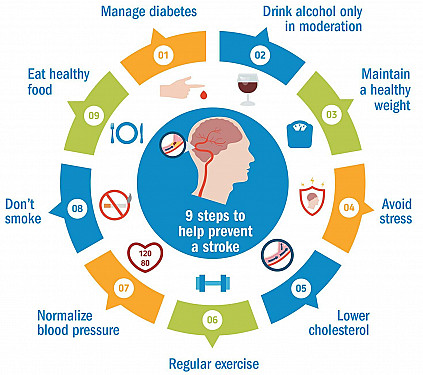Understanding secondary hypertension
Sometimes high blood pressure results from an underlying condition. Should you be checked for these problems?
High blood pressure (hypertension) usually results from a combination of factors, including age, genetics, obesity, a high-salt diet, and lack of exercise. But up to 10% of people with high blood pressure have secondary hypertension, which is a byproduct of another condition or disease.
Most of the time, secondary hypertension is caused by problems with the adrenal glands or the arteries supplying the kidneys (see illustration). Diagnosing and treating the underlying condition often improves or even resolves a person's elevated blood pressure. But how can you tell if you might have one of these uncommon issues?
"There are four main groups of people in whom you might suspect secondary hypertension as a possibility," says Dr. Randall Zusman, director of the Division of Hypertension at Harvard-affiliated Massachusetts General Hospital. Specifically:
- People who develop high blood pressure before age 30
- People who have never had high blood pressure but then develop it "out of the blue," usually after age 70
- People who experience a sudden rise in blood pressure following many years of stable hypertension that's been well controlled with medication
- People who have blood pressure above 130/80 mm Hg despite taking four or more medications.
Kidneys and adrenal glands
Most cases of secondary hypertension involve problems with the adrenal glands or the renal arteries. |
Aldosterone overload
The most common cause of secondary hypertension is hyperaldosteronism, in which one or both adrenal glands make too much aldosterone. This hormone raises blood pressure by telling the kidney to hold on to sodium and water and sending it back into the bloodstream, boosting blood volume. One common cause is a benign (noncancerous) growth in one adrenal gland. Another is bilateral adrenal hyperplasia, in which both adrenal glands are working overtime, for unknown reasons.
Hyperaldosteronism is uncommon in younger people (group 1) and more likely in those who are middle-aged with poorly controlled blood pressure (group 4). A low potassium level can be a red flag, but most people with hyperaldosteronism have normal potassium levels, says Dr. Zusman.
Narrowed kidney arteries
Renal artery stenosis, a narrowing of the arteries that supply the kidneys with blood, is another common cause of secondary hypertension. This condition typically stems from a buildup of fatty plaque in artery walls, a problem usually seen in older people. But it can also occur in young women with an inherited condition called fibromuscular dysplasia, which is marked by an overgrowth of muscular tissue in artery walls. As a result, doctors are more likely to suspect renal artery stenosis among people in groups 1, 3, and 4.
Less-common causes of secondary hypertension include Cushing's syndrome (which results from over-production of the stress hormone cortisol by the adrenal glands or from long-term use of steroid drugs) and thyroid disorders (diseases or growths that affect the thyroid gland's production of its hormone). Sleep apnea, a disorder in which you to stop breathing for short periods during sleep, can also trigger rises in hormones that raise blood pressure. (For group 2, any of the problems mentioned so far can lead to secondary hypertension).
Resistant hypertension
Secondary hypertension is common among people with so-called resistant hypertension, which includes people in the fourth group, as well as people who take three different blood pressure drugs at their maximum tolerated doses but still have high blood pressure. Over all, about one in four people with resistant hypertension ends up having an identifiable secondary cause.
However, in many people with stubbornly high blood pressure, the contributing cause isn't a disorder or condition but lifestyle habits, says Dr. Zusman. Often, these people are not taking their medications as prescribed, or they're consuming too much sodium (which counteracts the effects of many blood pressure drugs). Some are taking other medications or dietary supplements that elevate blood pressure.
But when those habits aren't to blame, doctors will look for clues to the other secondary causes, which can be revealed by a physical exam and specialized blood or imaging tests.
Remember: high blood pressure has no symptoms, and secondary causes can strike anyone. So have your blood pressure checked at every health care visit, Dr. Zusman says.
Image: © 7activestudio/Getty Images
About the Author

Julie Corliss, Executive Editor, Harvard Heart Letter
Disclaimer:
As a service to our readers, Harvard Health Publishing provides access to our library of archived content. Please note the date of last review or update on all articles.
No content on this site, regardless of date, should ever be used as a substitute for direct medical advice from your doctor or other qualified clinician.
















